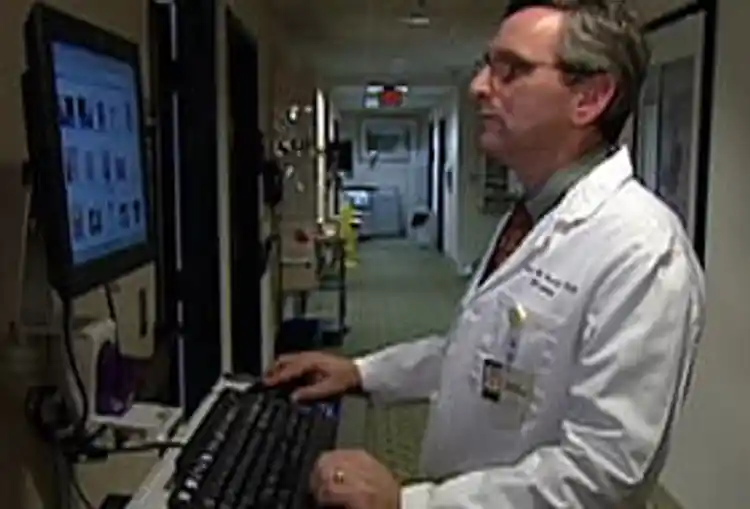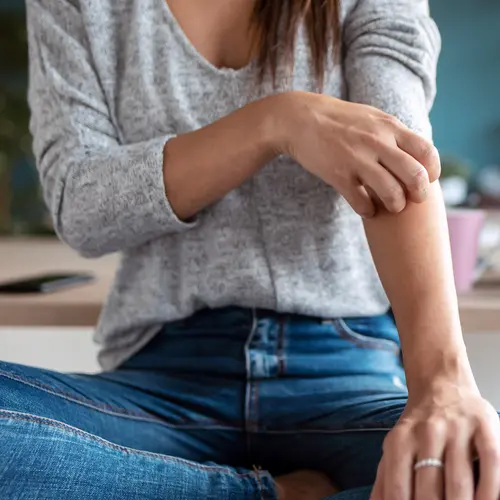Psoriasis Profile

Hide Video Transcript
Video Transcript
Aaron Ribner
There's some tenderness to it. There are days where it's just painful and your skin's cracking, it's bleeding. Gillian Ribner
Sometimes the bad days out-number the good days. And the bad days can be really bad to the point where, I mean, he's in tears. The pain is so bad he's in tears. Aaron Ribner
It can be very demoralizing to, you know, look in the mirror and see this condition chewing away at your body. Narrator
The condition that Aaron Ribner battles is psoriasis—a non-contagious skin disorder that currently has no cure and afflicts between two and three percent of the world's population. For those unaffected, it may seem odd that a skin disorder would be so overwhelming. Aaron Ribner
You make accommodations, but it becomes difficult and challenging. You might wear your beard longer. You might grow your hair longer. I've certainly done both of those things to, you know, cover up areas of my body where I've got psoriasis. Narrator
Outbreaks can sometimes be triggered by emotional stress, injury to the skin or by infections such as strep. Because it can masquerade as other skin conditions, especially in its early stages, diagnosis can be difficult. Aaron was told he had a bad case of dermatitis by two different specialists before he was eventually seen by Emory's Dr. Robert Swerlick. Robert A. Swerlick, MD
When I saw him he actually had evidence of an active strep infection. We treated that and also put him on a biologic agent. He did dramatically better. And, in fact, he came off all therapy for a while. Narrator
Though much is still unknown about psoriasis, experts believe it could be an inherited auto-immune disorder where skin-cell-production is accelerated and lesions form, ravaging the skin. Treatments include phototherapy, steroids, topicals and newer biologic agents which suppress the immune response. Robert A. Swerlick, MD
It's hard to imagine how I actually practiced with some of the older things where you'd smear people with tar and smelly things and goop them, where now, medications we have at our disposal can really put people into virtually complete remission. Narrator
Treatments can be expensive and sometimes difficult to acquire. Such was the case with Aaron when his next outbreak occurred. As his symptoms got worse, the disease took its toll on his family. Aaron Ribner
They know that daddy hurts. You know, they know that those areas of his body are very tender and very sore so they become much more ginger about, you know, coming up and having physical contact. Gillian Ribner
Why is that mommy? What's going on? Is daddy going to die? I mean you get those questions. Narrator
Not to mention the modifications to his behavior he had to make to keep from putting off friends and business associates. Aaron Ribner
I used to shake hands pretty much straight on and now I shake hands kind of like—more the hip-hop style, right, you come in from the top. Gillian Ribner
He is still trying to figure out how to talk to people, how to hide it. Aaron Ribner
If you use the word genetic disorder, people are more comfortable with it than, you know, a viral infection or something like that, that they might catch. And that's always really at the core of what people are afraid of, 'oh, can I get that'. Narrator
For WebMD, I'm Damon Meharg. 